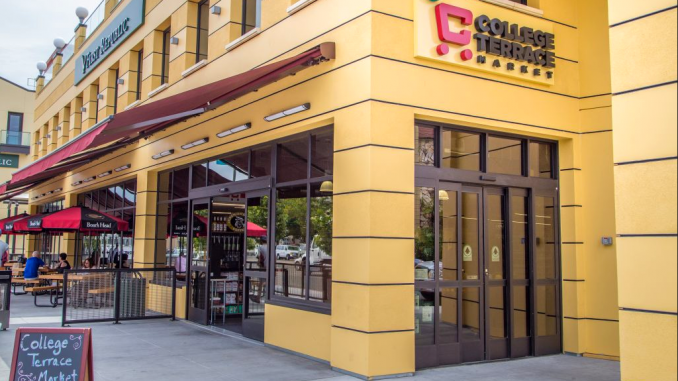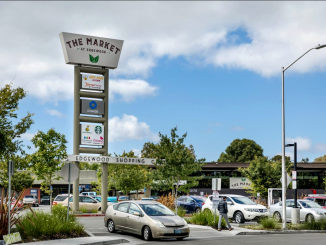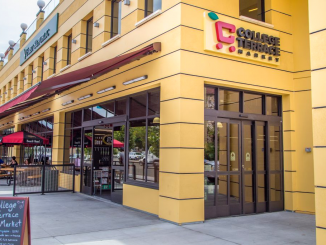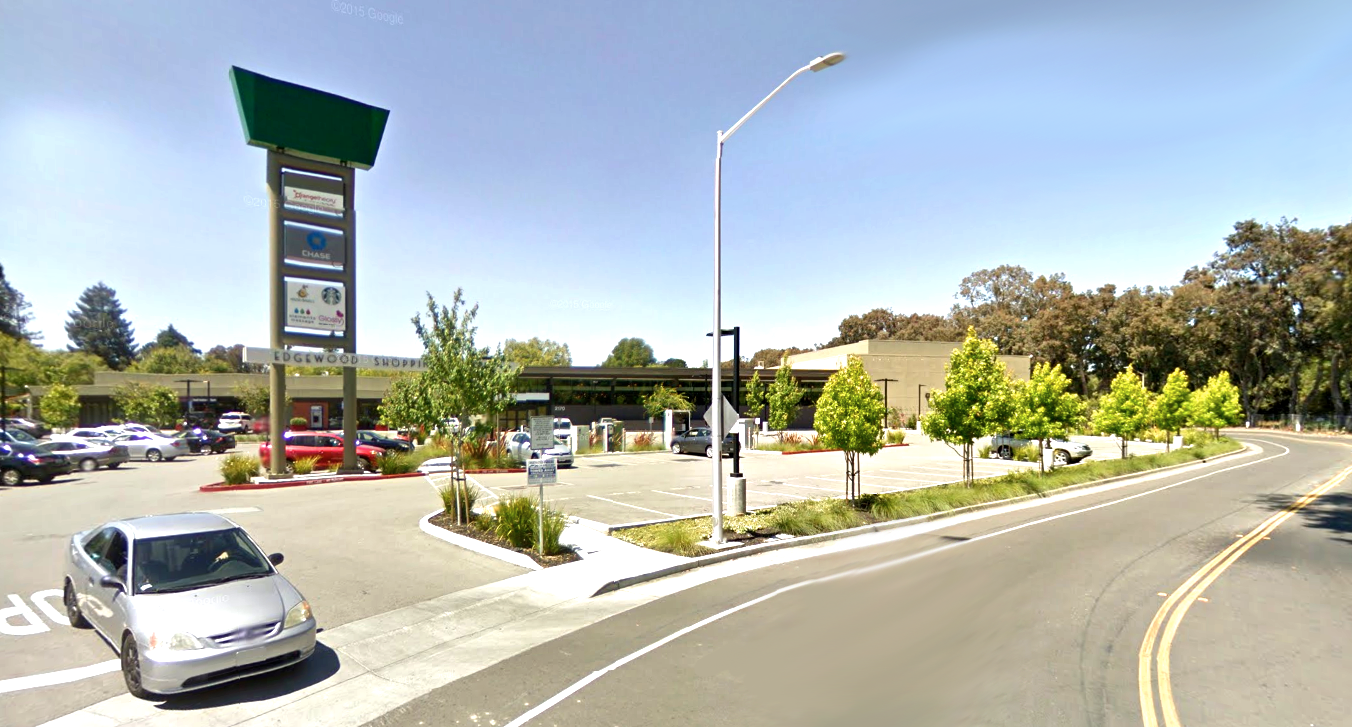
BY EMILY MIBACH
Daily Post Staff Writer
The office building at 2100 El Camino Real in Palo Alto, which housed the College Terrace Market until it closed in January, has a new owner. But that won’t stop the city from fining the owner $2,240 a day for not providing a grocery store, as required when the building was approved.
An investor group headed by Brian Spiers sold the 57,900-square-foot development to Palo Alto-based Blox Ventures, headed by CEO Jason Oberman. The price wasn’t disclosed. The deal closed on Thursday (June 28).
The building’s major tenant is First Republic Bank.
When the City Council approved the development in 2010, the developer was required to provide an 8,000-square-foot grocery store as a “public benefit” since the project meant the demolition of the old JJ&F Market.
Under an agreement with the city, if the store sits empty longer than six months, the property owner will face daily fines.
Interim Planning Director Jonathan Lait said that starting on July 10, the city will begin issuing $2,240 a day fines to the property owner, which now is Blox.
Oberman told the Post yesterday that he’s been “aggressively” looking for the right tenants for the site and the community. He said he was a former regular at JJ&F.
Before Oberman started Blox, a commercial real estate investment firm, he was acquisitions director for Rockwood Capital and leased more than 5 million square feet of commercial real estate including San Antonio Station in Mountain View, according to a San Jose Business Journals profile in 2015.
Lait said he learned about the new owners on Friday, and has been working on arranging a meeting with Oberman to talk about the market.
Another market closed
This will not be the first vacant grocery store to be fined for sitting empty by the city.
In March 2015, the Fresh Market closed at Edgewood Plaza, near the Highway 101-Embarcadero Road interchange, after less than two years in business.
The closure led the city to fine the developer of the shopping center, Sand Hill Property Co., headed by Peter Pau, for every day the shopping center was without an operating grocery store. The fines totaled more than $1.3 million.
Like College Terrace, the city had required Sand Hill to provide a grocery as a “public benefit” in exchange for the approval of an associated development, in this case the construction of 10 homes.
Dispute over fines
Sand Hill went to court over the fines. A judge on Dec. 15 negated $248,250 of the fines in a dispute over whether the council ordinance allowing the redevelopment required the developer to provide an “operating grocery store” or simply set aside space for a store.
The judge only threw out part of the fines and both sides are expected to resume the battle over the remaining $750,000 in fines.
Meanwhile, a new grocery store opened at Edgewood on Dec. 1. It’s operated by Mustafa and Kyazi Mutlu, who own Crystal Springs Produce, 770 Polhemus Road in San Mateo.




The reason the market failed is that the surrounding neighborhood told the city they badly wanted a grocery, but they didn’t support it by shopping there. They chose to get their groceries from Safeway or Costco. If i were in the grocery business, I wouldn’t risk opening another store in that fickle neighborhood.
@Darwin, that’s not true. The residents did shop there, but the prices were high and the selection wasn’t what you’d want. It failed because the City allowed First Republic (upstairs) to open an employee cafeteria, which ensured those workers wouldn’t be shopping at this market. Also, the city painted a red curb in front of the store on El Camino, eliminating visible parking to people passing by. Those decisions by the City pretty much doomed this market. It wasn’t a lack of support from neighbors.
wake up, folks … the city is being scammed here … the developer only put in a grocery store to satisfy the council … but he intentionally let it fail so that he could run back to council and say, ‘it didn’t work, now let me put offices in there. cry, cry, wail, wail’
and council would be hard pressed to say NO to more offices
the first developer took the bullet, so to speak, and did the failing grocery store trick … paving the way for this blox guy to easily get offices approved on the ground floor
the grocery wasn’t supposed to succeed …. the council was played …
losing money on a grocery store that lasted 6 months was a small price to pay for a developer who gets a 70-80 million project …
our city council is full of naive people with little or no real world experience … clever grifters can allways rip them off … nothing new here if you’ve lived in palo alto for a few years …
I think the College Terrace Market was under capitalized. They closed after 6 months. They should have known that it would have taken longer for the store to take off. The landlord, who was required to have a grocery, should have helped out. Building office buildings is an incredibly profitable activity in Palo Alto. They could have put some of those profits into helping the store until it gained a foothold.
One obvious thing that hurt that market was the paint job on that building? What do you call that color anyway? “Baby with upset stomach throws up”?
Darwin seems to be the only person that understands what he’s talking about. You don’t “put in a grocer” as a ploy hoping it will fail. These things are huge investments with lender considerations and long-term implications. They don’t fail because of a cafeteria or a paint job. They fail b/c it’s not what the consumer demands and/or supports.